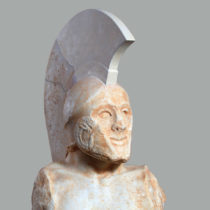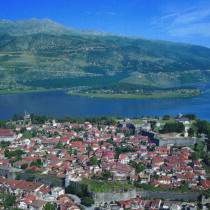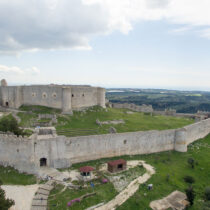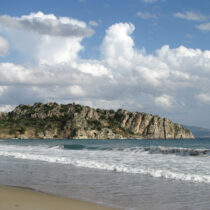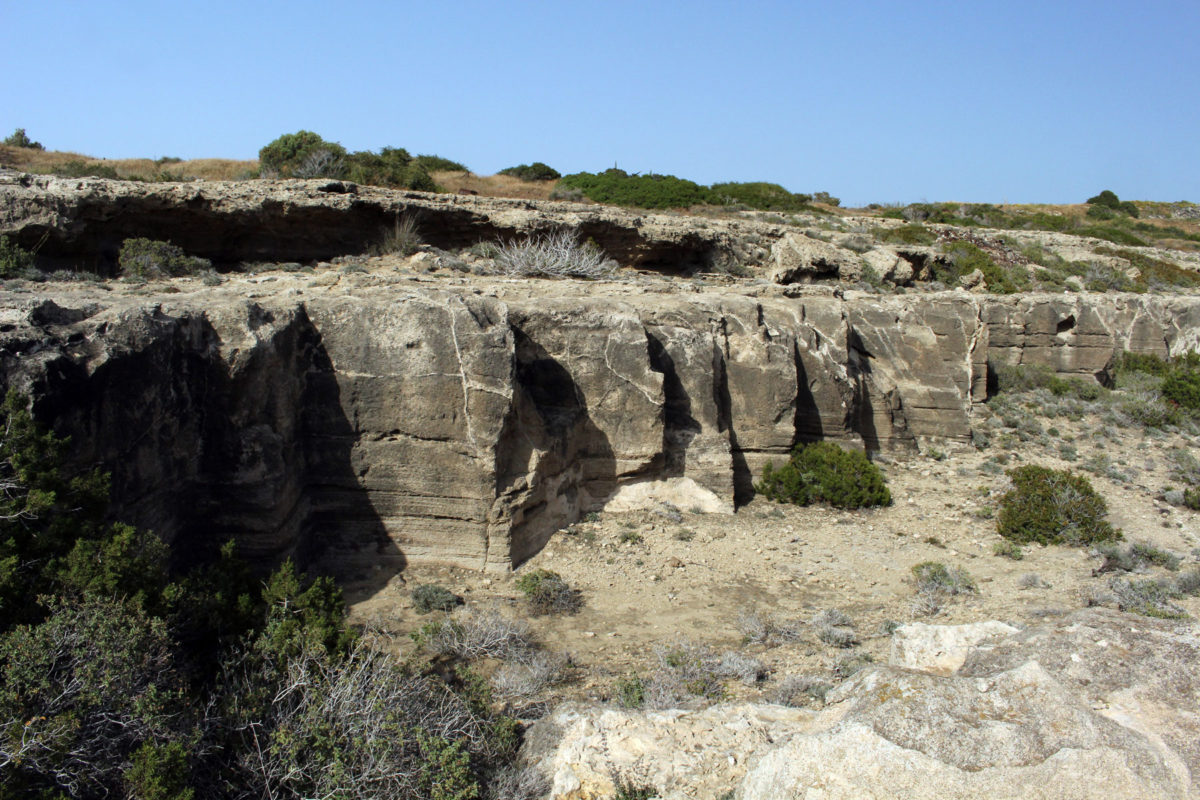The Athenian and Macedonian News Agency at the paleontological excavation at Pikermi
Apes, rhinos, giraffes, hyenas, animals with a proboscis and other species in east Attica of the Miocene epoch.
Large-scale whaling in north Scandinavia may date back to 6th century
The intensive whaling that has pushed many species to the brink of extinction today may be several centuries older than previously assumed.
Mesomerican turquoise may have different origin than previously thought
Though scholars have long assumed that Aztec and Mixtec turquoise artifacts uncovered in Mesoamerica were imported from the American Southwest, a new isotopic analysis suggests these artifacts likely derived from Mesoamerican sources.
Ancient Egypt and New Technology
The Egyptology program and the Virtual World Heritage Laboratory of Indiana University - Bloomington invite proposals for an international conference on Ancient Egypt and New Technology: Computer Visualization, Virtual Reality and Other Digital Humanities in Egyptology, to be held 19-20 March 2019 at Indiana University.
Rogier van der Weyden Unveiled
Beginning June 14, 2018, The Lamentation of Christ (c.1460-1464) by Rogier van der Weyden will be restored in a specially built studio in the exhibition space of the Mauritshuis.
Cuneiform tablets from Bassetki reveal location of ancient royal city of Mardaman
The place where the clay tablets were found – Bassetki, in Autonomous Region of Kurdistan in Iraq – appears to be the ancient royal city of Mardaman.
A large number of ancient artefacts were found after fire was extinguished
Around 400 whole ancient artefacts were found (vessels, figurines, animal statuettes and a few bronzes) and a large number of fragments of vessels and statuettes.
Achaemenid architecture and its decoration
On Thursday, June 14th, at 7.00 p.m., Michael Douglas Roaf, Professor emeritus for Near Eastern Archaeology at the University of Munich, Fellow of the Onassis Foundation / National Hellenic Research Foundation, will give a lecture on "Achaemenid architecture and its decoration".
‘Monstrous’ new Russian saber-tooth fossils clarify early evolution of mammal lineage
Fossils representing two new species of saber-toothed prehistoric predators have been described by researchers from the North Carolina Museum of Natural Sciences (Raleigh, USA) and the Vyatka Paleontological Museum (Kirov, Russia).
Heritage science: Where the past looks to the future
"Heritage science is a cross-disciplinary field that covers conservation, archaeological, and building science. It is highly relevant to the field of chemistry," explains Matija Strlic.
Holes in the head
Trepanation was so expertly practiced in ancient Peru that the survival rate for the procedure during the Incan Empire was about twice that of the American Civil War.
Studying archaeological collections in the digital environment
The training school aims to get participants acquainted with the process of creating, organising, managing and exploring archaeological collections in digital environment.
The Ministry of Culture is sued by Sotheby’s auction house
The Ministry of Culture and Sports anticipates the notification of the lawsuit by Sotheby’s and the Howard and Saretta Barnet family and will take all necessary measures to protect the public interest.
Oldest bubonic plague genome decoded
A pair of 3,800-year-old skeletons buried together in Russia test positive for a strain of the plague-causing bacterium Yersinia pestis that is ancestral to the strain that caused the Black Death.
French newsprint and earlier works beneath Picasso’s painting
Recent hyperspectral infrared imaging of Pablo Picasso's Mother and Child by the Sea (1902), a Blue Period painting in the collection of the Pola Museum of Art, Japan, revealed portions of printed text in French similar to newsprint.
Van Gogh landscape sold for seven million Euros
Artcurial auction house described the sale as an important event, as works by the Dutch painter have been absent from French auctions during the last 20 years.
Akrotiri-Dreamer’s Bay: One of the best preserved ports in the Mediterranean?
The excavations were conducted between 30 March and 16 April 2018, at and around the locality of Dreamers Bay (Nisarouin) on the southern shores of the Akrotiri peninsula, Cyprus.
Jurassic diet: why our knowledge of what ancient pterosaurs ate might be wrong
New research, published in Biological Reviews and led by a team of palaeobiologists from the University of Leicester, has revealed that the diets of pterosaurs are largely based on ideas that have been uncritically accepted for decades, or even centuries – and may often be wrong.
First tetrapods of Africa lived within the Devonian Antarctic Circle
The first African fossils of Devonian tetrapods (four-legged vertebrates) show these pioneers of land living within the Antarctic circle, 360 million years ago.
The concept of an enlightened sovereign in the palace of Aigai
Crowds of people participated in a thorough guided tour conducted by the Director of the Ephorate of Antiquities of Imathia of the palace of Philip II that opened to the public.
All of Edvard Munch’s drawings are available online
90% of the works of this online gallery belong to the Museum collection.
Dinosaur skeleton fetches $2.3 million at auction
Private collectors show a huge interest in dinosaur fossils, as shown once again at a sale that took place in the first floor of the Eiffel Tower in Paris.
When did animals leave their first footprint on Earth?
On July 20, 1969, Neil Armstrong put the first footprint on the moon. But when did animals leave the first footprint on Earth?
Late Pleistocene human mandibles from the Niah Caves may hint at ancient diets
Morphology of rare human mandibles suggest past consumption of dried meats, palm plants.

